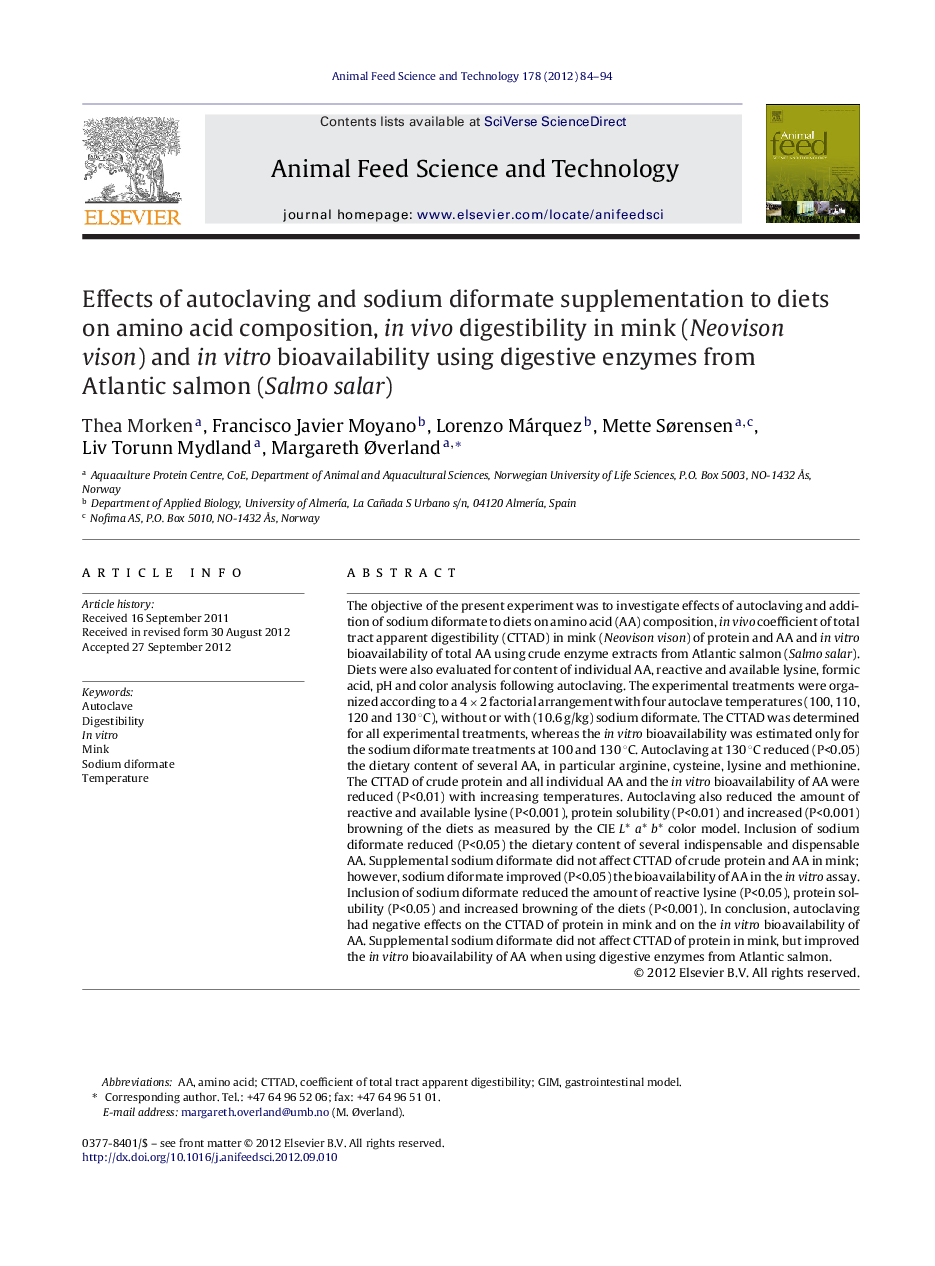| Article ID | Journal | Published Year | Pages | File Type |
|---|---|---|---|---|
| 2419743 | Animal Feed Science and Technology | 2012 | 11 Pages |
The objective of the present experiment was to investigate effects of autoclaving and addition of sodium diformate to diets on amino acid (AA) composition, in vivo coefficient of total tract apparent digestibility (CTTAD) in mink (Neovison vison) of protein and AA and in vitro bioavailability of total AA using crude enzyme extracts from Atlantic salmon (Salmo salar). Diets were also evaluated for content of individual AA, reactive and available lysine, formic acid, pH and color analysis following autoclaving. The experimental treatments were organized according to a 4 × 2 factorial arrangement with four autoclave temperatures (100, 110, 120 and 130 °C), without or with (10.6 g/kg) sodium diformate. The CTTAD was determined for all experimental treatments, whereas the in vitro bioavailability was estimated only for the sodium diformate treatments at 100 and 130 °C. Autoclaving at 130 °C reduced (P<0.05) the dietary content of several AA, in particular arginine, cysteine, lysine and methionine. The CTTAD of crude protein and all individual AA and the in vitro bioavailability of AA were reduced (P<0.01) with increasing temperatures. Autoclaving also reduced the amount of reactive and available lysine (P<0.001), protein solubility (P<0.01) and increased (P<0.001) browning of the diets as measured by the CIE L* a* b* color model. Inclusion of sodium diformate reduced (P<0.05) the dietary content of several indispensable and dispensable AA. Supplemental sodium diformate did not affect CTTAD of crude protein and AA in mink; however, sodium diformate improved (P<0.05) the bioavailability of AA in the in vitro assay. Inclusion of sodium diformate reduced the amount of reactive lysine (P<0.05), protein solubility (P<0.05) and increased browning of the diets (P<0.001). In conclusion, autoclaving had negative effects on the CTTAD of protein in mink and on the in vitro bioavailability of AA. Supplemental sodium diformate did not affect CTTAD of protein in mink, but improved the in vitro bioavailability of AA when using digestive enzymes from Atlantic salmon.
